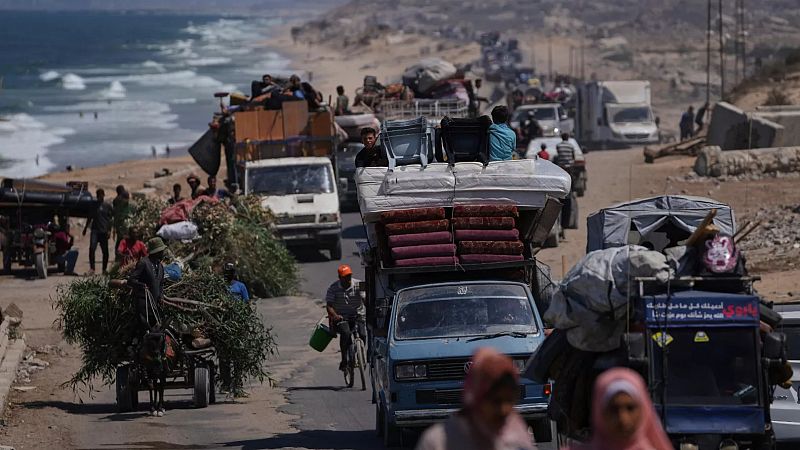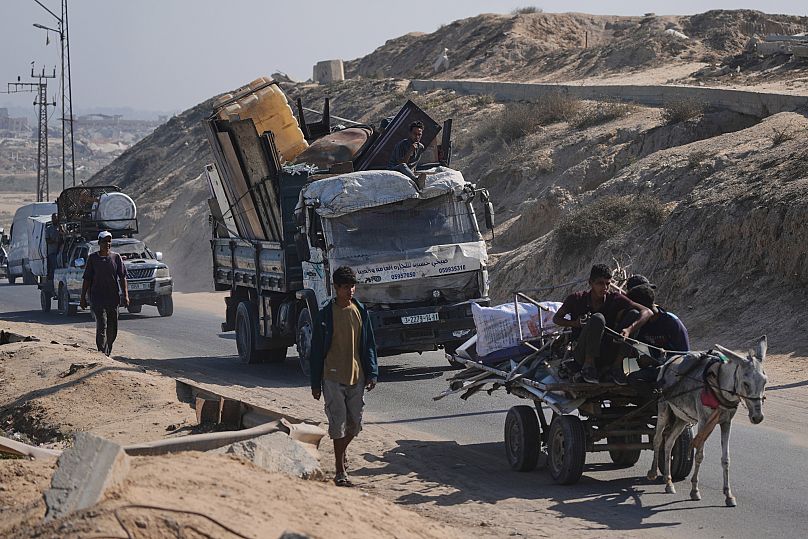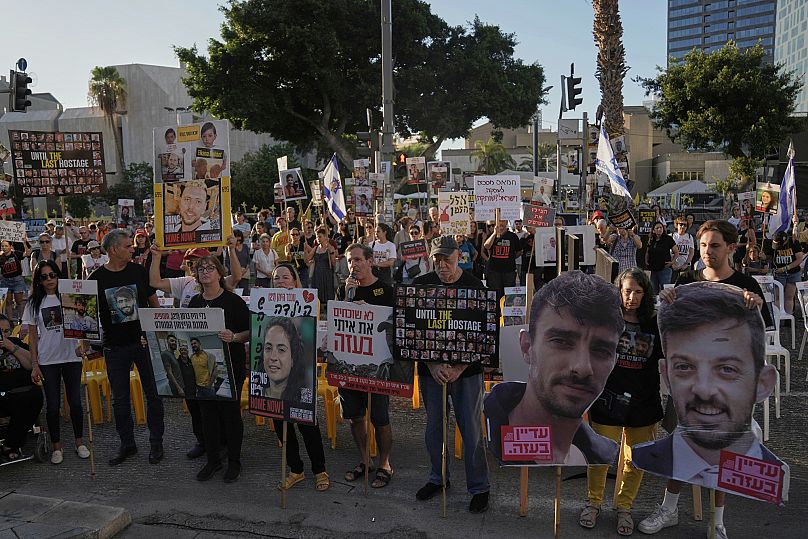Israeli military urges full evacuation of Gaza City ahead of expanded military operation

The Israeli military urged the complete evacuation of Gaza City on Tuesday morning ahead of its planned expanded offensive in the city, marking the first warning for a full evacuation of the city.
Previously, the IDF had warned specific sections of Gaza City to move ahead of concentrated operations or strikes.
Previous warnings to leave specific neighbourhoods have had little impact on a population that has already been displaced multiple times and unsure if moving to southern Gaza would really be safer.
IDF spokesperson Colonel Avichay Adraee warned last week that the evacuation of Gaza City was "inevitable," saying families who move south would receive humanitarian assistance.
But aid groups warned there was little infrastructure to support them.
There are an estimated 1 million Palestinians in the area around Gaza City, according to both the Israeli military and the United Nations, making up around half of the Strip's total population of 2.1 million.
As of Sunday, a coalition of humanitarian groups tracking movement in northern Gaza said they had tracked 50,000 people fleeing south. A similar number of people moved within Gaza's north, data showed.
The data from the coalition, called the Site Management Cluster, tracks movement from eyewitness accounts, social media posts and information from partners on the ground, because access to northern Gaza is restricted.
Dozens of Palestinians, including doctors and medical staff, took part in a protest in Gaza City on Tuesday, gathering those who rejected the Israeli evacuation orders.
Dr Rami Mhanna, managing director of Shifa Hospital, said that although the situation in Gaza City was tense, the facility is still operating and receiving patients.
"So far, things are as usual," he said, two hours after the Israeli military ordered the evacuation of Gaza City.
"But the atmosphere is tense and there is great psychological pressure on the staff and patients."
In Jerusalem, families of hostages and former captives in Gaza pleaded with Israeli lawmakers to halt the Gaza City offensive.
"I was held captive by Hamas for 498 days and was released in a deal in February," Iair Horn, whose brother, Eitan, is still in captivity, told the Knesset's Foreign Affairs and Defence Committee.
"If I was released through a deal, then apparently that’s the right way to free the rest of the hostages who remain."
UN says many families can't afford to move
The United Nations humanitarian agency said many families cannot evacuate even if they want to, because displacement sites are overcrowded and because it can cost more than $1,000 (€851) to move to southern Gaza, a prohibitive cost for many.
A UN initiative to bring temporary shelters into Gaza said that more than 86,000 tents and other supplies were still awaiting clearance to enter the Strip as of last week.
The UN relief agency UNRWA said on Tuesday that Israeli attacks on residential towers in Gaza City had displaced dozens of families, with many of them having been left “on the streets without shelter or basic necessities.”
Defence Minister Israel Katz on Tuesday said Israel had demolished 30 high-rise buildings, which he accused Hamas of using for military infrastructure.
COGAT, the Israeli defence body overseeing humanitarian aid to Gaza, said 1,500 humanitarian aid trucks primarily containing food entered the Strip last week, and there are plans to bring in 100,000 tents in the coming weeks, many of which are currently waiting in Jordan.
Today



